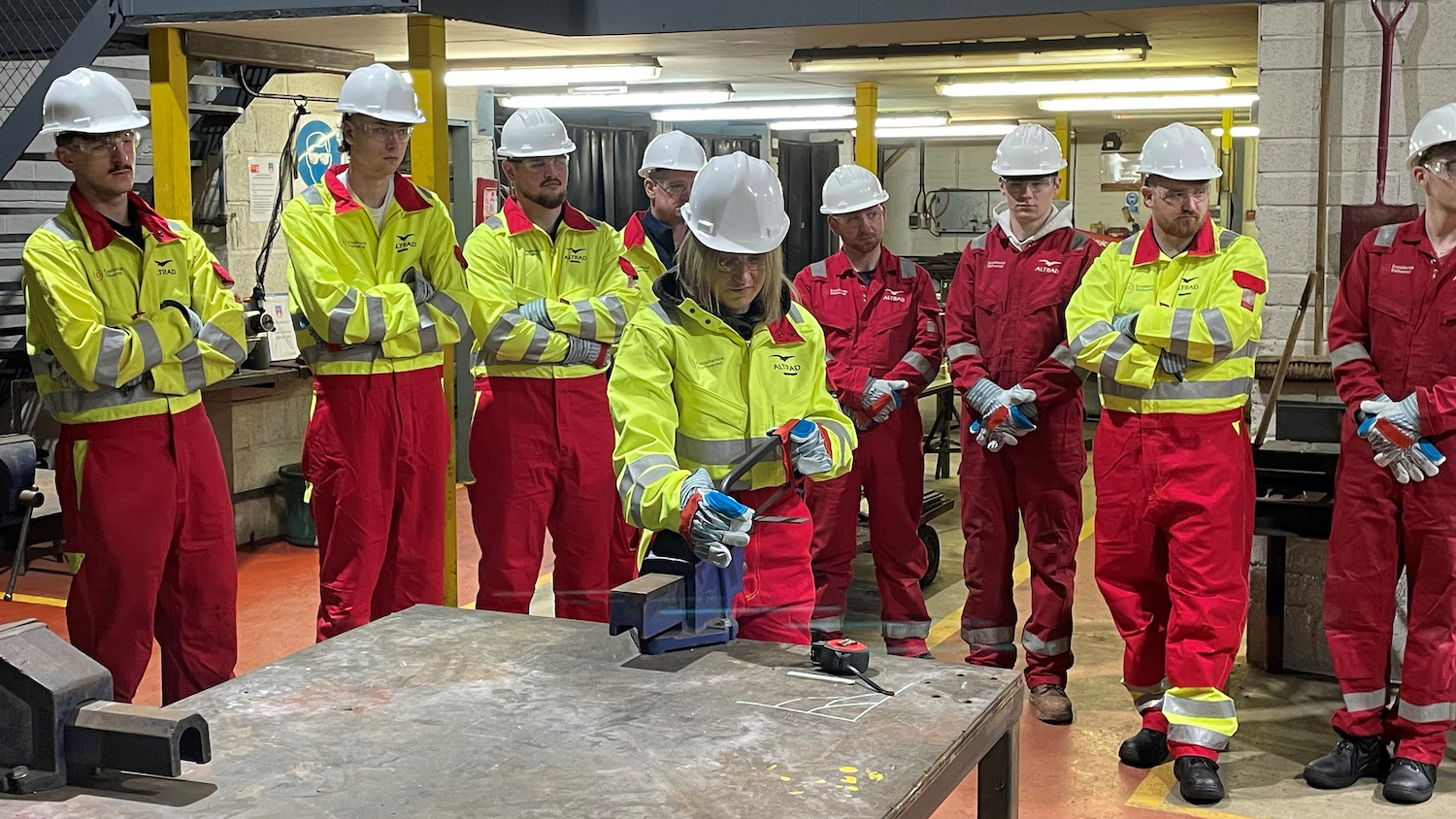
Skills crisis: why collaboration is critical in challenging times
A collaborative approach is needed to avert the looming skills crisis in engineering construction
These are challenging times for the engineering construction industry (ECI) as it faces a looming workforce and skills crisis.
The ECITB’s Labour Forecasting Tool predicts an extra 40,000 skilled workers could be needed in the industry in the next five years amid a boom in project activity.
Finding these extra workers won’t be a straightforward task, especially when you consider that our career motivations study, Inspiring Directions, showed the industry is struggling to appeal to the general population, and in particular young people and women, to help plug these skills shortages.
This all paints a stark picture of the challenges that lie ahead for the industry as it seeks to meet a 28% increase in demand for workers.
The role of ECI
For context, the ECI is a specialised industry that underpins the delivery, maintenance and decommissioning of much of the UK’s critical infrastructure.
It operates across the oil, gas, nuclear, renewables, hydrogen and carbon capture sectors, as well as other process industries, such as chemicals, pharmaceuticals, food processing, water and waste treatment.
As the employer-led skills body for the ECI in Great Britain, our Leading Industry Learning strategy aims to help industry tackle these challenges.
We’ve pledged more than £87m over three years to support workforce training and tackle the industry’s labour shortages and skills gaps, which is why half of our training grant budget is dedicated to training and developing new entrants.
But we recognise that we can’t solve these recruitment and retention issues alone. We need a collaborative approach across industry to deliver, grow and maintain a skilled engineering construction workforce fit for the future.
The pilot Work Ready Programme at Pembrokeshire College in 2023 was a big success, with all learners who completed the programme gaining employment, and it prompted the expansion of the model across the UK
Employers, training providers and colleges, trade associations and local and national government need to work together to make the most of opportunities that exist in the ECI, especially as we move towards a net zero economy by 2050.
The work being done in the major industrial clusters at the heart of the UK’s decarbonisation agenda is a great showcase of the benefits in adopting a collaborative approach to bring in new entrants.
Work Ready Programme
Since joining the ECITB in June 2023, I’ve seen some great initiatives in these clusters, including the Work Ready Programme placing learners into employment in the industry.
The programme, which was developed to create a pipeline of new entrants and help address skills gaps, is a collaborative and co-funded partnership between the ECITB, employers, training providers, the Department of Work and Pensions and other local partners.
Attendees, who are 18 and over, gain recognised industry skills and accredited qualifications as part of a programme that lasts up to 16 weeks and helps them secure employment at the end.
The pilot programme at Pembrokeshire College in 2023 was a big success, with all learners who completed the programme gaining employment, and it prompted the expansion of the model across the UK.
The first cohorts of 2024 have taken their first steps to securing jobs in the industry after the initiative launched in Cumbria, Pembrokeshire, Hampshire and Teesside.
And almost 50 people, including many who have been long-term unemployed, are currently going through the Trainee Maintenance Operative (TMO) programme.
As well as the core training in health and safety, rigging and mechanical joint integrity, the programme involves learners achieving a Level 2 Diploma in Performing Engineering Operations.
The success of these collaborative partnerships to get these schemes off the ground underscores the programme’s effectiveness as a scalable solution to address regional skills gaps and build a sustainable talent pipeline for the future.
Andrew Hockey is chief executive of the Engineering Construction Industry Training Board (ECITB).
Comments
Comments are closed.







The ECITB Labour Forecasting tool make far too many assumptions.
CITB have used similar in the past which were totally inaccurate
Andrew, your insights into the challenges facing the engineering construction industry are crucial in navigating the looming skills crisis.
The collaborative efforts highlighted in your article, particularly the success of initiatives like the Work Ready Programme, underscore the importance of proactive measures in addressing skill shortages and nurturing a sustainable talent pool for the future.
While the accomplishments of pilot programs, such as the one at Pembrokeshire College, are indeed noteworthy, it’s imperative to broaden our scope and reach across all regions of the UK. While rural areas have shown promise, focusing solely on them may inadvertently neglect the larger communities and urban centers where skill shortages are equally pressing.
By expanding these collaborative initiatives to encompass a nationwide approach, we can ensure equitable access to opportunities and skill development resources for individuals across diverse regions.
Additionally, fostering partnerships with employers, training providers, government agencies, and local communities will be instrumental in scaling up these programs effectively.
Ultimately, a unified and concerted effort is needed to address the challenges posed by the skills crisis in the engineering construction industry, and your leadership in championing collaborative solutions is pivotal in shaping a brighter future for the sector.